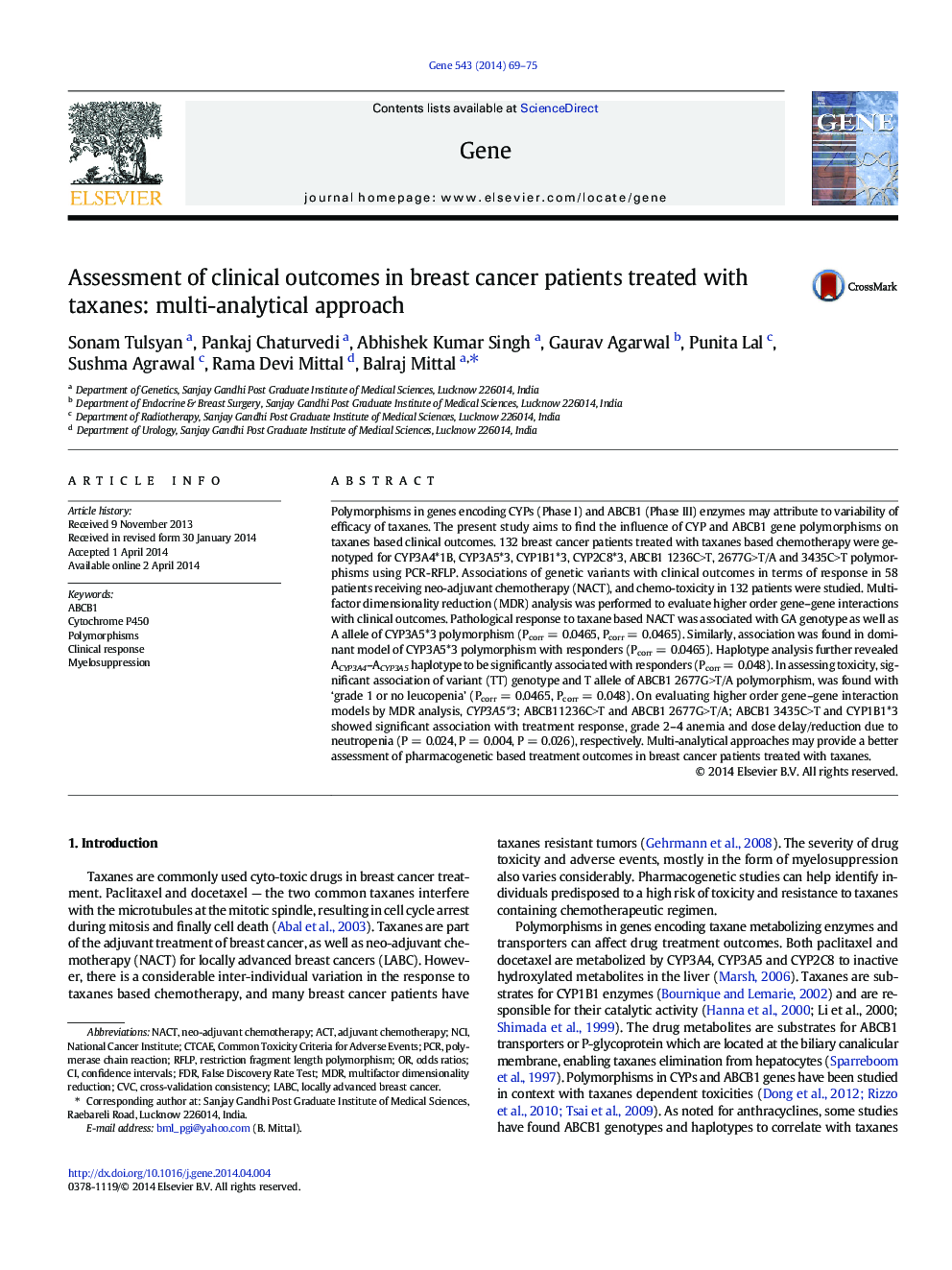| Article ID | Journal | Published Year | Pages | File Type |
|---|---|---|---|---|
| 2816351 | Gene | 2014 | 7 Pages |
•Taxanes are metabolized by CYPs and ABCB1 enzymes.•Genetic variations in these enzymes may affect taxane based treatment outcomes.•CYP3A5*3 polymorphism may have a role in response to taxane based chemotherapy.•ABCB1 2677G>T/A may possibly affect taxane dependent grade 2–4 leucopenia.•Haplotype analysis showed correlation of CYP3A4*1B–CYP3A5*3 with treatment response.
Polymorphisms in genes encoding CYPs (Phase I) and ABCB1 (Phase III) enzymes may attribute to variability of efficacy of taxanes. The present study aims to find the influence of CYP and ABCB1 gene polymorphisms on taxanes based clinical outcomes. 132 breast cancer patients treated with taxanes based chemotherapy were genotyped for CYP3A4*1B, CYP3A5*3, CYP1B1*3, CYP2C8*3, ABCB1 1236C>T, 2677G>T/A and 3435C>T polymorphisms using PCR-RFLP. Associations of genetic variants with clinical outcomes in terms of response in 58 patients receiving neo-adjuvant chemotherapy (NACT), and chemo-toxicity in 132 patients were studied. Multifactor dimensionality reduction (MDR) analysis was performed to evaluate higher order gene–gene interactions with clinical outcomes. Pathological response to taxane based NACT was associated with GA genotype as well as A allele of CYP3A5*3 polymorphism (Pcorr = 0.0465, Pcorr = 0.0465). Similarly, association was found in dominant model of CYP3A5*3 polymorphism with responders (Pcorr = 0.0465). Haplotype analysis further revealed ACYP3A4–ACYP3A5 haplotype to be significantly associated with responders (Pcorr = 0.048). In assessing toxicity, significant association of variant (TT) genotype and T allele of ABCB1 2677G>T/A polymorphism, was found with ‘grade 1 or no leucopenia’ (Pcorr = 0.0465, Pcorr = 0.048). On evaluating higher order gene–gene interaction models by MDR analysis, CYP3A5*3; ABCB11236C>T and ABCB1 2677G>T/A; ABCB1 3435C>T and CYP1B1*3 showed significant association with treatment response, grade 2–4 anemia and dose delay/reduction due to neutropenia (P = 0.024, P = 0.004, P = 0.026), respectively. Multi-analytical approaches may provide a better assessment of pharmacogenetic based treatment outcomes in breast cancer patients treated with taxanes.
